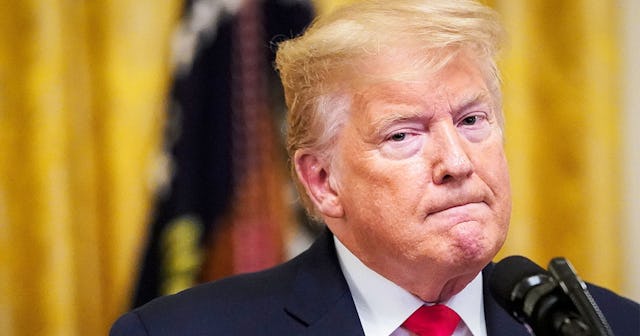Supreme Court Allows Trump Admin To Limit Green Cards Based On Wealth

The Supreme Court voted for a “public charge” rule that would allow the Trump administration to make obtaining legal status more difficult for immigrants who rely on public assistance
In a 5-4 vote on Monday, the Supreme Court supported a public charge rule that will give the Trump administration the power to make it increasingly difficult for immigrants to obtain their green card — primarily for those without financial means who rely on public assistance.
Previously, a “public charge” was considered an immigrant who was dependent upon cash benefits. However, in August, the Trump administration proposed broadening the definition to include non-cash benefits, including Medicaid, supplemental nutrition (aka, food stamps), and federal housing assistance. What this new rule means is that an immigrant could be denied because of a governmental concern that they would depend on the government for their income — making the individual prove their wealth in order to gain entrance into the country. If the government believed that they would need aid for more than 12 months in a three-year period, they could be denied.
All five conservative justices voted for the rule, while the four liberal justices voted against it.
Last October several judges across the country, including those in New York, Connecticut, and Vermont, issued preliminary rulings blocking the policy change. However, some of them were put on hold by higher courts, which is when the Supreme Court got involved.
The current order allows the rule to go into effect immediately in every state except Illinois, covered by a separate injection.
So many people — including high profile politicians — have responded to the move, many declaring it as blatant racism. And many plan on fighting it.
“Generations of immigrants have come to this country with little more than a dream in their pockets, but the president’s Public Charge Rule is an egregious attempt to infringe upon the values of our nation,” New York Attorney General Letitia James, who is planning on challenging the rule, said in a statement on Monday, according to The Hill. “We have already received a favorable decision in the district court and are continuing our fight against the Trump Administration in the Court of Appeals.”
“This decision will hurt immigrant communities,” added Javier Valdés, an executive director of the immigrant group Make the Road New York, which brought a separate legal challenge against the rule. “The Trump administration’s public charge rules attack our loved ones and neighbors by imposing a racist wealth test on the immigration system. We will continue our fight in the courts to stop this reckless policy in its tracks.”
“Public charge is racist. Public charge is discriminatory. Public charge is anti-poor people. This administration’s immigration policies will be remembered for what they are: inhumane & hateful,” declared Wisconsin Congressman Rep. Mark Pocan on Twitter.
Journalist Rachel Morris points out that it “essentially creates a backdoor mechanism to alter the composition of immigrants to the United States.”
It could also discourage many from seeking financial resources that they really need, because they are afraid it could have a negative impact on their chances of immigration.
“This is a hugely important policy that targets poor and working-class immigrants who are disproportionately from Africa, the Caribbean, and Latin America,” points out journalist Noah Lanard.